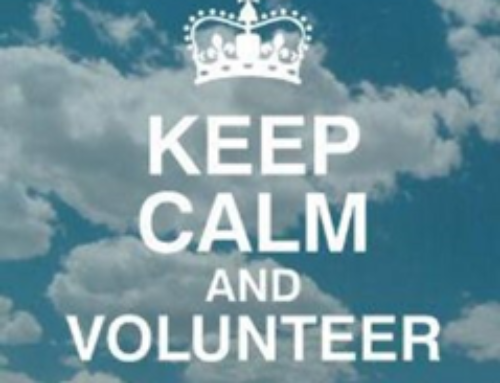
And if you are practicing (or believe in) what I call “social PR,” then you already subscribe to the philosophy that social sharing isn’t just about being nice to people, it’s a strategic imperative that ultimately supports relationship-building for your business.
The psychology of social sharing
Mark Schaefer is someone who really walks the talk when it comes to social sharing; he’s one of the few true gurus I know who puts his mouse where his mouth is. He’s working on a new book (The Content Code) due out next year, and has become pretty interested in the psychology of social sharing. As research for his book, he posed this question the other day:
Making a decision to share content regularly from one person is not just about “quality.” There are tons and tons of quality content out there. Why me? Why do you choose to share my content almost every day?
I asked him if I could share my answer, as I thought it would make for a good blog post and, true to his word, he consented.
Here’s what I said to Mark (minor edits that don’t impact the meaning of what I wrote):
2014 was a very interesting year for my business. It grew quite a bit, which was great! And this also meant that I spent much more time working in the business as much as on the business.
Now, for most of us who call social media “home,” often working in and on the business mean the same thing: spending more time online, tweeting more, blogging more, Facebooking more, etc. For me, though, it actually meant less time online than before, because now I was engaging in more proactive business development, pulling together teams for larger pieces of business, and moving closer to my goal of heading a “social PR” strategic consultancy, as opposed to running a typical PR shop that happens to *do* social media.
I also tried to step up my game w.r.t. more meaningful interactions offline. So, for example, in the past you would have seen me live-tweet ad nauseam from, say, a marketing conference, or be online all of my weekend waking hours.
This year, though, I made it a point to catch up offline with people I don’t get to see that much, spend more quality time with my friends, and so on. I also made it a point to try and keep the evening hours and weekends for “real” personal time with family, friends and offline activities, though of course I went online when I felt like it (which is key to note!).
I was thus faced with the conundrum that most small (and, frankly, large) business owners (still) face: how can you “be” and “do” social in the truest sense of the word if you simply don’t have the time?
As I said to Mark, one thing I have realized is that if one’s business is PR & marketing, then a certain level of social activity is necessary. It’s the basic litmus test for service providers in our industry; if prospects don’t see us as being social, they are far less likely to even consider us as business partners or vendors. So I had to put in place for myself some system of curation similar to that I recommend to clients, or teach about.
Using tools wisely for social sharing
For me, as I told Mark, at least part of the answer has been Triberr. I’ve talked a lot about it in the past, and for a while I went a little off it. But especially as my time constraints increased, I found myself thinking more and more about it. So I went back to it, looked really closely at the various tribes I was in, and decided whose content I felt comfortable with regularly, and share automatically.
As I said to Mark:
I did not choose to do this for a long time, because I’m in many tribes, and not everyone’s content is consistent. That’s fine; we all have our bad days. But when you are between a rock and a hard place, trying to ensure you curate at least a minimum level of reliable content, you need it to be consistent! That means you have to trust the quality of content coming from those people, so that you don’t have to worry about whether or not to share it.
This is where Mark’s content comes in. He’s one of the few (believe me, they are very few) people whose content I always share, because I trust him.
I’ve read his blog for so long now, yet I’m regularly amazed at the smart content he publishes – not just from himself, but from other bloggers. So often I have those, “Why didn’t I think of that?” moment after I read {grow}. To date, there has not been a single post that made me scratch my head and say, “Meh.”
Mark has talked often about how hard he’s worked to grow his audience, which is one of the things I like most about {grow} (and him): that he shares his lessons learned openly and honestly, without minimizing all the hard work he’s done. And one of the wonderful consequences of this hard work is that his audience – of which I am one – trusts him.
As a business leader focusing on PR to build your business, or as a PR pro trying to work smarter while the world changes before your eyes, or as an academic trying to equip your students as best you can for the “real” world, I cannot stress this strongly enough:
It comes down to trust.
If, as part of your PR strategy, you don’t focus on:
- creating great content that people can trust;
- curating good content regularly so that people can trust you’re not just out to put the spotlight on yourself;
- participating actively in the social web by giving way more than you get (commenting on other blogs, talking to people and not just at them, and so on);
… it will be really really hard for you to come out on top of an increasingly socialized world.
So as you plan for 2015, do consider this, especially as you start to map out your PR (and/or social media) strategy. What are you going to do that will get people to trust you so much that they’d essentially be willing to share your content blindly?
Because if you can swing that, that will do so much more for your business than most media “hits” will do for you.
I would love to know what you think, and how you approach social sharing. Particularly as we move into 2015, is this going to change how you approach social media for your business? I’d really love to know via a comment below.









[…] 6. Social Sharing: What Makes It Tick? […]
biggreenpen OMG, those “”$0.50 off …” people slay me!
I love your criteria, and I’ve seen you really walk your talk. I.e., if you say you’ll do something, you do it, and you go all out. That’s really remarkable.
Happy New Year, Paula!
Corina Manea I thought SME was (is) absolutely EXcellent! It’s such a quick and easy read, and you don’t feel like Mark is preaching to you at any point – but that he’s been there, he gets what you’re going through. That’s really what a business book should be, isn’t it?
Thank you also for sharing your thoughts! Amen to “not talking about yourself” – that made me laugh! But that’s so true. And it’s really interesting, the more you listen to other people, the more you learn, which in helps you to do your work so much better… right? Not to mention, be a nicer person (at least slightly) overall!
Thanks so much for stopping by, Corina. I hope 2015 has started off well for you.
Hi Shonali,
Great post. Just like in offline relationships, trust is so important in the online world.
It´s
easy to share everything you get your eyes on, just to have content,
but I think it´s more important the quality of the content you share.
Giving your followers something that interest them, that they can learn from or can use, makes them come back to you for more.
I bought Mark Schaefer´s
latest book: Social Media Explained last week and I can´t stop reading
it. It´s very very good. Just like on his blog, the book breaths Marks
passion for teaching others how to succeed in social.
So,
to answer your question, being passionate about your work (which is not
talking about yourself!) and earning people´s trust are keys to social
sharing success in 2015.
Vox_PRPA Belated thanks (I actually took some time off over the holiday, as you can see!).
shonali Did u know that shonali followerz Can make money surfing Twitter and FB all day? check it: http://miracleCBDoil3.com/?=shonali0
shonali Did you know that shonali followerz Can make money surfing Twitter all day? Check it out: http://miracleCBDoil5.com/?=shonali4
Shonali Turbodean biggreenpen leaderswest Hi Shonali (and others … I am in great company here I think!). There are so many components of this post that touch on something for me – I may have to do my own! But to answer your question here in the comments, Shonali … there is no one on my Triberr feed I have set to share automatically (frankly I didn’t know that option was available until recently). When I first started Triberr, it had just switched from auto sharing to “you have to designate what gets shared” so I just made it a part of my morning routine to go through the posts and decide what to share. There are some people who I ALWAYS share because I have had a long relationship with them on social media and I know I can trust their content. There are some I RARELY share (there are quite a few in my feed whose posts are things like “$0.50 off dishwashing detergent today at Target!”. // I also share much more generously on Twitter (because I know the stream just keeps on moving along than on Facebook.Otherwise, my criteria are 1) Is this something I can wholeheartedly put my name/support behind and 2) is it likely that the author/creator will be interactive if one of my friends/followers comments? Hope this helps — great topic!
Turbodean That’s so kind of you to say, Turner – thank you!
I love it when I can pull from other posts, etc., to form a new one – but it does get challenging, trying to figure out how to frame it so that it isn’t repetitive, or Buzzfeed like (Gah!). So I appreciate your comment very much.
biggreenpen leaderswest You’re two people who share certain folks’ content pretty consistently. I’d love to know your thoughts as well!
@mdyoder ShellyKramer Thank you BOTH very much!
Shonali, this post does a great job of describing the importance of and in your case benefit of re-posting good content. But your own actions speak even louder; this posting of ‘original’ content of your own about quality re-posting is brilliant. Anyone can (auto) re-post, but your how, when and why is enlightening. Thank you and happy holidays!
ShellyKramer Thanks for sharing this post, Shelly. Trust is definitely one of the keys to curating and sharing content w/confidence.